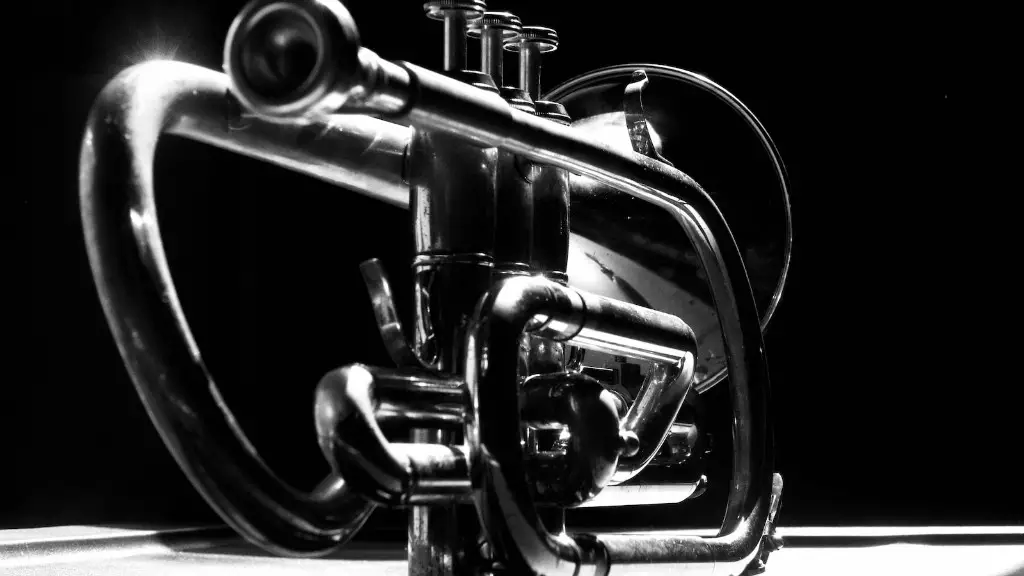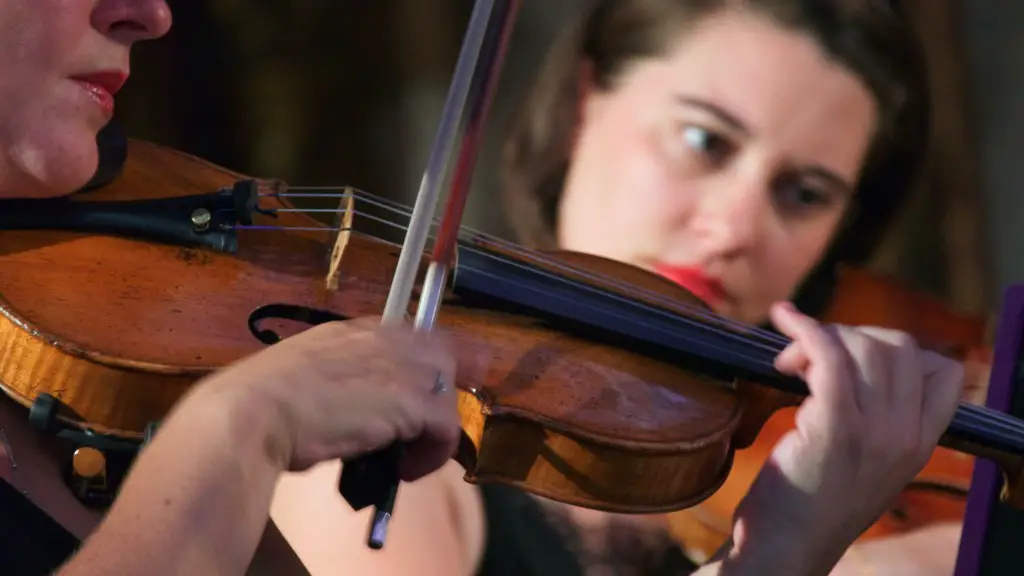Playing the trumpet is a great way to make music and entertain others. It requires dedication, practice, and hard work to get better at it. In this article, we’ll provide you with some useful tips on how to improve your trumpet playing skills.
The most important thing to remember when learning the trumpet is to practice regularly. Set aside time each day or week to focus on improving your technique and honing your skills. Invest in quality sheet music and use it as a reference, so that you can learn different techniques and become familiar with the instrument. It’s also important to find a good teacher who can help guide you on your journey as a trumpeter.
It’s also important to listen closely when listening to recordings of other trumpet players. Listening carefully will allow you to pick up new techniques and nuances that you can use in your own playing. Finally, don’t forget to take breaks while practicing so that you don’t tire yourself out too quickly. This will help ensure that your practice sessions are productive and beneficial.
Following these tips should help you become a better trumpet player. Remember, practice makes perfect! With dedication, focus, and hard work, you should be able to improve your playing skills in no time. Good luck!
Practice regularly and take lessons from a qualified teacher.
Learn Proper Posture
If you want to get better at the trumpet, proper posture is essential. It is important to keep your back straight and your shoulders back. Keeping your head up and maintaining an upright posture will help you have optimal breath support and greater control over your sound. Be sure that your elbows are slightly bent, with your arms relaxed at the sides of your body. You should also make sure that the trumpet is positioned correctly in relation to your mouth. The bell of the instrument should be parallel to the ground and at a slight angle away from you. Practicing this posture regularly will help you feel more comfortable while playing.
It is also important to consider how you are standing or sitting while playing. If you are standing, make sure that both feet are planted on the ground, shoulder-width apart. Your knees should be slightly bent and your weight evenly distributed between both feet. When sitting for extended periods of time, it is best to sit in a chair with a straight back or use a music stand with a chair attachment so that you can maintain good posture while playing.
Good technique involves more than just correct posture; however, it is an important starting point for achieving better sound quality on the trumpet. With practice, good posture can become natural and help you play with greater accuracy and control of sound.
Develop a Practice Routine
Developing a practice routine is essential for improving your trumpet playing. Start by setting a regular practice schedule that you can commit to and stick with. Dedicate at least a few hours each week to practicing. Break up the practice time into manageable chunks, such as 30 minutes each day, so you don’t get overwhelmed.
When you practice, focus on one or two specific skills or techniques. This will help you stay focused and make sure you are getting the most out of each session. Make sure to start off with something easy, like scales or arpeggios, and then gradually increase the difficulty as you move through your routine.
It is also important to vary your practice routine so that you don’t get bored or stuck in a rut. Incorporate different exercises, pieces of music and scales into your routine to keep things interesting and challenging. Mixing up your practice routine will help keep your skills sharp and prevent stagnation.
Take time to listen critically to yourself while playing in order to identify areas for improvement. Make sure to take regular breaks when practicing; this will give your mind and body time to rest which can be beneficial in the long run. Lastly, set achievable goals for yourself that are measurable so that you can track your progress over time!
Master the Basics of the Trumpet
Playing the trumpet is an exciting and rewarding experience. To be successful, it is important to master the basics first. This includes understanding how to hold the instrument, how to breathe properly while playing, and how to make the right notes. It is also important to understand basic music theory so you can create your own melodies and improvisations. Practicing regularly is key to mastering the trumpet, as it allows you to build up your skills and develop a stronger sound. Start with easy exercises such as scales and long notes, then gradually increase the complexity of your pieces over time. Also consider joining a band or orchestra for further practice opportunities.
It takes patience and dedication to master any instrument. Don’t be discouraged if some pieces are difficult at first — everyone starts somewhere! Making mistakes is part of learning, so don’t be afraid to push yourself outside of your comfort zone. Be consistent with your practice routine for best results, and ask for help from a teacher or mentor if needed. With enough hard work, you can become an excellent trumpeter!
Understanding Music Theory to Improve Trumpet Playing
Music theory provides an understanding of the language of music and helps you understand how to create and interpret musical compositions. It can help trumpet players learn to play difficult melodies and improvisations, as well as develop their overall musical skills. To become a better trumpet player, it’s important to understand the fundamentals of music theory.
The first step is to become familiar with the basics of music notation, such as time signatures, key signatures, and note values. Once you have a strong foundation in these areas, you can move on to more advanced topics like harmony, voice leading, and chord progressions. It’s also important to understand musical terms like dynamics and articulation so that you can express yourself musically.
In addition to learning music theory, it’s important for trumpet players to practice regularly in order to improve their technique. This includes playing scales and arpeggios slowly with a metronome or drum machine in order to build up speed. Regular practice is also essential for developing good intonation and breath control on the trumpet. Practicing with a teacher or other experienced musicians can help you develop your skills faster than if you were practicing alone.
Listen and Learn from Other Players
If you want to become a better trumpet player, one of the best ways to improve is to listen and learn from other players. This can mean listening to professional trumpet players, attending clinics and workshops, or even talking with other musicians who have more experience than you. Listening to trumpet recordings can also provide great insight into how different players approach the instrument. By studying their techniques, you can learn how to apply them to your own playing.
Another way to learn from other players is by engaging in one-on-one lessons with a mentor or music teacher. Many teachers can provide specific feedback on how you can improve your technique and musicality. Ultimately, the key is to remain open-minded and absorb as much information as possible from those around you. With practice and dedication, you will be able to refine your playing abilities and take your trumpet skills to the next level!
Getting Better at the Trumpet
One of the best ways to get better at playing the trumpet is to record yourself. This will help you become aware of any mistakes you may be making and give you a chance to go back and practice again. It can also be used as a reference point when you are practicing, allowing you to track your progress. Listening back to your recordings can help you identify areas where improvement is needed and give you an opportunity to work on those specific skills.
When recording, it’s important to use good quality equipment for the best results. If possible, use a digital recorder or smartphone so that you can get a clear sound. Position the microphone close enough that it captures all of your playing but not so close that it picks up too much background noise. Once you have recorded your performance, take some time to listen back and analyze what worked well and what could use some work.
It’s also a good idea to practice with other musicians whenever possible, either in person or using online tools like Zoom. Collaborating with others will give you insight into different techniques and provide valuable feedback on your playing style. Additionally, performing with others will help build confidence in your abilities and help keep things interesting while practicing.
To Sum it All Up
Practicing and playing the trumpet require dedication and time. To get better, one must practice regularly, be patient, listen to great trumpet players, and seek guidance from experienced instructors. Taking private lessons is a great way to learn proper technique and develop one’s skills. Also, playing with other musicians helps to build confidence and encourages learning in a fun environment.
The key to getting better at the trumpet is to stay motivated, practice frequently, and always strive for improvement. With enough effort, anyone can become a great trumpet player!





